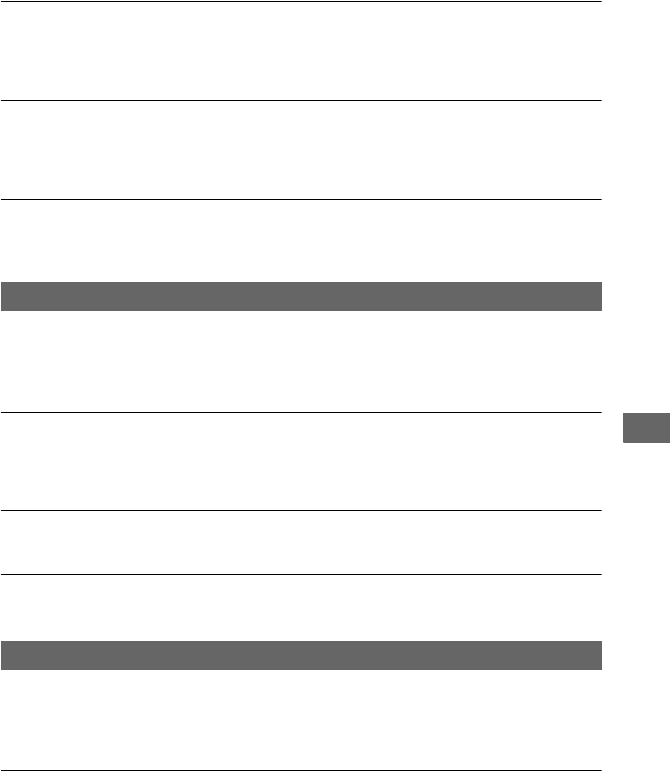
97
Troubleshooting
Neither image nor sound is played back on the TV or monitor connected with
the HDMI cable or a commercially available 75Ω (ohm) coaxial cable.
• Signals are not output from the HDMI OUT and SDI OUT jacks when the USB jack is
connected.
The image appears distorted on the 4:3 TV.
• This happens when viewing a movie recorded in 16:9 (wide) mode on a 4:3 TV. Select [REC/
OUT SET] t [VIDEO OUT] t [DOWN CONVERT TYPE] t the appropriate down
conversion type (p. 77).
Black zone appears at top and bottom of a 4:3 TV screen.
• This happens when viewing a movie recorded in the 16:9 (wide) mode on a 4:3 TV. This is
not a malfunction.
Time code and other information appear on the display of the connected
device.
• Set [DISPLAY OUTPUT] to [LCD PANEL] while connected with the A/V connecting cable
(p. 84).
Dubbing cannot be done correctly using the A/V connecting cable.
• The A/V connecting cable is not connected properly. Make sure that the A/V connecting
cable is connected to the input jack of the other device for dubbing images from your
camcorder.
Sound cannot be added to the recording media after recording.
• You cannot add sound to the recording media after recording on your camcorder.
Dubbing cannot be done correctly using the HDMI cable.
• You cannot dub movies using the HDMI cable.
The camcorder is not receiving a GPS signal.
• Your camcorder may not be able to receive radio signals from GPS satellites because of
obstructions. Bring your camcorder to an open area. For details on places where radio signals
do not reach, see page 105.
The triangulating location is different from the actual current location.
• If your camcorder receives the radio signal reflected by surrounding buildings, or weak radio
signals, the margin of error can be as wide as several-hundred meters, at a maximum.
Dubbing/Editing/Connecting to other devices
GPS
Continued ,


















